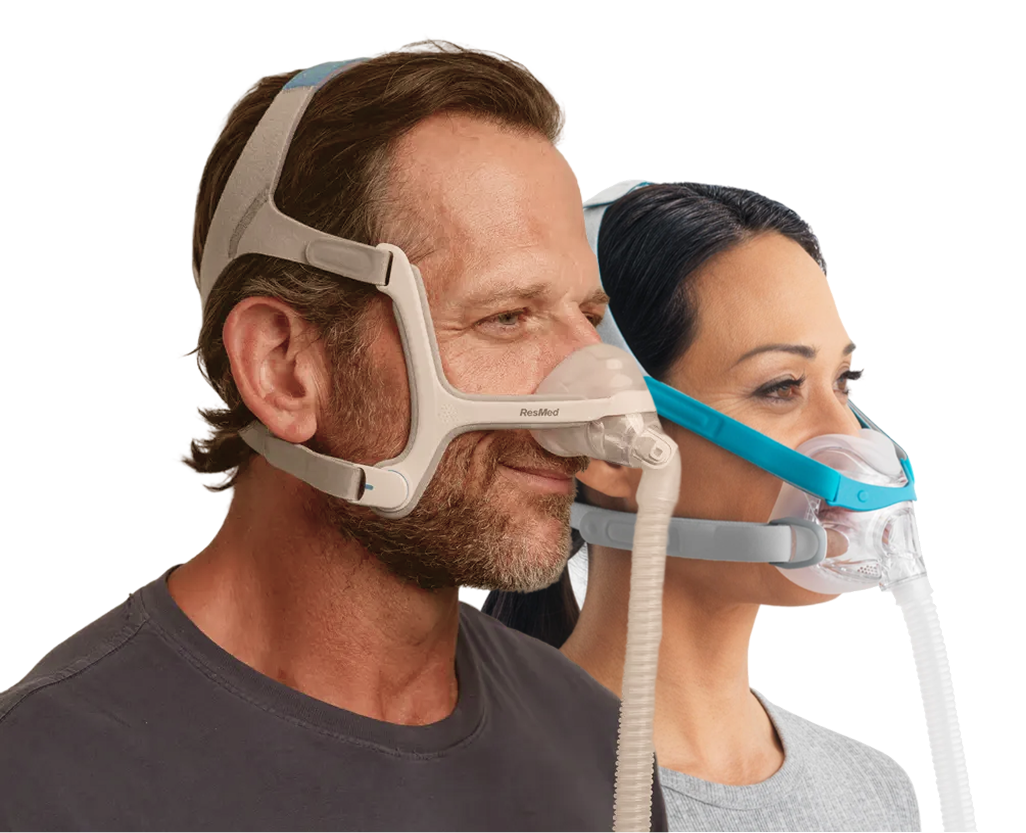CPAP machines are one of the most common and effective treatments for sleep apnea. To keep them working properly and safely, regular cleaning and maintenance are essential. Because the equipment delivers air directly while you sleep, daily cleaning helps remove harmful microbes, mold, dust, and ensuring your therapy truly supports better health and restful nights. At CPAP Discount Warehouse, we’ve put together a detailed guide to help you care for your machine the right way. Read the article below to learn more.
Why Clean Your CPAP Machine?
The moist environment inside your CPAP machine can become a breeding ground for bacteria and mold, which can lead to unpleasant odors, skin irritation, and even infections. Regular cleaning eliminates these pathogens, ensuring that the air you breathe is clean and healthy.
Moreover, dust and oils from your skin can build up on the mask, causing it to lose its seal over time. Regular cleaning helps maintain the seal's effectiveness, which is crucial for the device to provide the right air pressure.

>>> Guide to Servicing and Cleaning CPAP equipment
Understanding CPAP Components
Before cleaning, let’s break down the main parts of your CPAP machine:
1. Mask: Includes nasal, full-face, and nasal pillow masks. Comes in direct contact with your skin and needs frequent cleaning.
2. Tubing/Hose: Transfers air from the machine to your mask. Moisture accumulation can lead to bacterial buildup.
3. Humidifier Chamber: Stores water to keep airflow humidified. Needs regular cleaning to prevent mold growth.
4. Filters: Can be disposable (should be replaced regularly) or reusable (require frequent washing). Prevents dust and allergens from entering the machine.
CPAP Cleaning Supplies
Get the best CPAP cleaning essentials for the lowest price:
1. A soft cloth
2. warm water
3. Mild, gentle soap, or a CPAP soap
How to Clean Your CPAP Machine?
+ Step 1: First, unplug your CPAP machine and detach the humidifier and tubing. Make sure the tubing is also disconnected from your CPAP mask.
+ Step 2: Wash the humidifier and tubing in a sink or tub using warm water and mild soap. Use a cloth to wipe the inside of the humidifier and the outside of the tubing, ensuring that the soap mixture also reaches the inside of the tubing.
+ Step 3: Rinse both the humidifier and tubing thoroughly with warm drinking water. Using drinking water is recommended, as any remaining water may evaporate during CPAP use.
+ Step 3: Place the humidifier on a flat surface lined with a towel and allow it to air dry completely before reassembling.
To keep your CPAP machine working properly and protect your health, the humidifier should always be kept clean, clear, and free from discoloration. If you notice leaks that are not coming from the tubing, inspect your mask for cracks or tears, as a damaged mask can interfere with therapy.

Maintenance Tips:
Regular filter replacement is essential for keeping your CPAP running smoothly. When filters become dirty or clogged, airflow decreases and the machine works harder than it should. Most CPAP machines use a reusable foam filter, which should be cleaned frequently and replaced about every six months or sooner if it shows signs of dirt or damage.
How you store your CPAP also affects its durability. Always keep the machine in a dry, clean space, away from dust, humidity, and other harmful elements. Much like shielding a car from extreme weather, protecting your CPAP from environmental factors will help it function well for longer.
>>>> CPAP Equipment Cleaning Soaps: Types, Differences, and How to Choose the Right One
FAQs
How often should I clean my CPAP machine?
- Daily: Mask and humidifier chamber.
- Weekly: Tubing, headgear, and reusable filters.
Can I use vinegar to clean my CPAP?
Yes! A mixture of 1 part vinegar and 3 parts water is great for disinfecting the humidifier chamber.
Can I use baby wipes to clean my CPAP mask?
No, baby wipes contain lotions and chemicals that can damage the mask. Use CPAP wipes instead.
What happens if I don’t clean my CPAP machine?
You risk bacterial infections, mold buildup, and machine damage. Regular cleaning prevents respiratory issues.
Remember, maintaining your CPAP machine's cleanliness is not just about prolonging its life; it's also about ensuring your own health and safety. A clean, well-maintained CPAP machine will provide better sleep apnea treatment and a more comfortable sleep experience.






